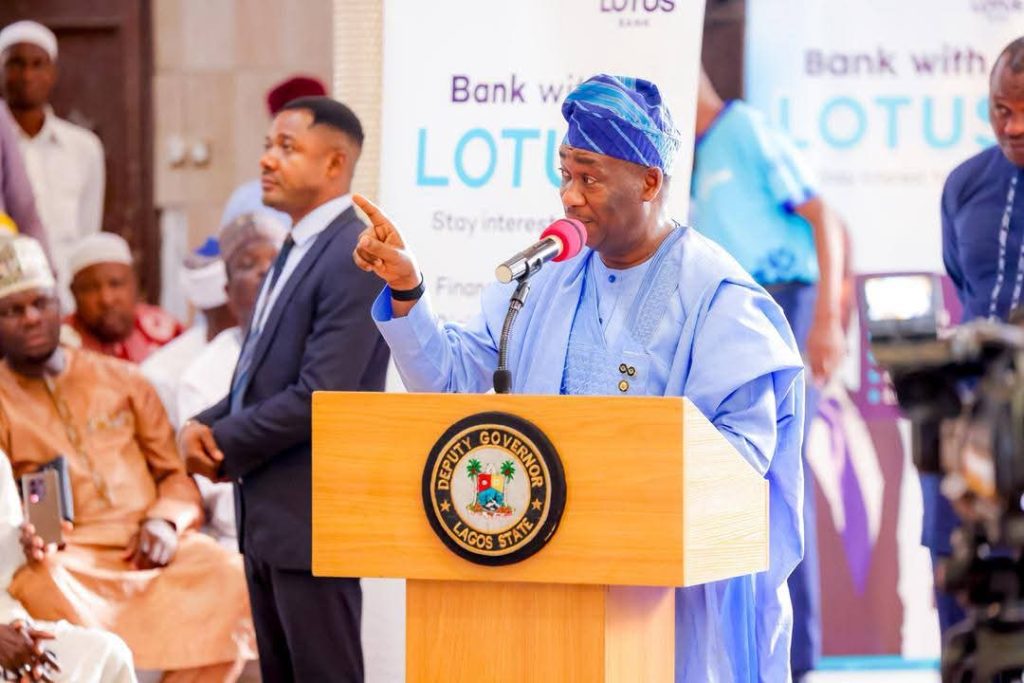Governor Babajide Sanwo-Olu of Lagos State has stressed the urgent need for a more coordinated partnership between government and religious leaders to effectively counter misinformation and promote development plans among citizens.
He spoke yesterday at a Capacity Training and Enhancement Workshop for Imams and Ulama, held at the Lagos Central Mosque, through his deputy, Obafemi Hamzat.
Sanwo-Olu underscored the unique influence of the pulpit, noting that “we need to be coordinated.”
READ ALSO: Sanwo-Olu launches rural health scheme in Agboyi-Ketu, 5,000 residents get free insurance
The governor said, emphasising that the failure to actively engage Alfas and Pastors disadvantages the government.
“Their voices reach the very people we are trying to speak to, and partnering with them will ensure our messages are not only heard but trusted.”
The workshop, themed “Enhancing the Partnership of Spiritual Leaders and Government in Nation Building,” was organised by the Council of Chief Imams and Ulama in the state.
Sanwo-Olu also raised a concern about the declining religious identity among younger generations, challenging faith leaders to collaborate to reinforce core values and religious heritage.
He queried: “What are we doing that our children are leaving our religion? If so, what can we do to ensure that our children remain within our faith traditions?”
To foster enduring peace and prevent disputes, the governor stressed the importance of strengthening the Nigerian Inter-Religious Council (NIREC) as a vital unified platform for Muslim and Christian leaders across the state.
The Grand Chief Imam of Lagos and Chairman of the Council of Chief Imams and Ulama, Sheikh Sulaiman Abou-Nolla, echoed the sentiment, stating that the event underscores the “indispensable role of collaboration between faith-based institutions and governance in fostering peace, progress, and prosperity.”
A key part of the workshop focused on the financial stability of spiritual leaders.
In his lecture, “Promoting Self-Reliance and Economic Empowerment of Spiritual Leaders,” the Special Adviser to the Governor on Islamic Matters, Abdullahi Ahmad, argued that financially independent spiritual leaders are crucial for social stability.
He urged Imams to integrate their religious responsibilities with lawful economic productivity, citing Prophet Muhammad (SAW) as an example of balancing faith and sustainable livelihood.
READ ALSO: Who may likely succeed Babajide Sanwo-Olu in Lagos?
Ahmad highlighted pathways to self-reliance, including: skill acquisition and small-scale entrepreneurship, effective time management, and accessing the state empowerment schemes like LSETF and community development grants.
Separately, the National Missioner of the Ansar-ud-deen Society of Nigeria, Sheikh Abdur’Rahman Ahmad, described the Imam as “the bridge of trust between government and the people”, affirming that sustainable development is built when spiritual guidance and public governance work in concert to shape society’s moral fabric.



